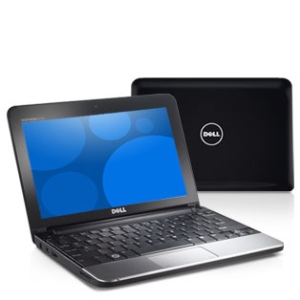Kato Mivule | December 1, 2009
With the success of Mobile Phones in Africa, it is not a mistake to perceive that ‘The Next Big Thing’ in Africa’s Information Technology Market will be Netbooks as they are gaining popularity due to their similarity to Mobile Phones in Portability, size, speed, storage and lower prices as the article below articulates… With a large growing educated Middle class in Africa obsessed with the latest Cell phones, Laptops will certainly be part of the package to be craved…
Netbooks Gain Popularty in Africa
By Rebecca Wanjiku | Computerworld Kenya |December 01, 2009Portability, low cost and minimal power demands are driving the trend as more Africans get Internet access
Portability, low cost, minimal power demands and availability of bandwidth have led to the growth of netbooks in Africa, as the continent pushes toward increased Internet penetration.
“There is definitely a big opportunity for netbooks in Africa in the education, SOHO and SMB sectors, largely driven by the broadband boom in Eastern and Southern Africa as local content increases and netbooks become more and more affordable,” said Stanley Kamanguya, systems and infrastructure analyst at IDC East Africa.
Dell, Samsung, Asus, Hewlett-Packard, Intel, Acer and the One Laptop Per Child (OLPC) are some of the major suppliers of netbooks in the region.
Most netbooks retail between US$250 and $450 and consumers are attracted to the costs, compared to $600 and $1,000 for other midlevel laptops and PCs, respectively.
“Affordable access will drive penetration of computers and connectivity; only when computers and connectivity are truly affordable does ICT reach the majority of the population in any country,” said Tony Roberts, CEO and founder of Computer Aid International.
Computer Aid is providing the Dell Mini 10 netbook to educational and nonprofit institutions in Africa as a low-power alternative to regular desktop PCs, a move that is expected to drive connectivity levels up.
“The cost of commercially available new PCs and monthly Internet connectivity charges in Africa currently puts computers and connectivity beyond the reach of most ordinary people,” said Roberts.
Erratic power outages, lack of power in rural areas and the high cost of power have led users to consider low-power options and netbooks provide the best alternatives.
“The increasing availability of laptops and netbooks will make computing more attractive and practical to users in Africa. Specifically, low-power PCs and long-lasting batteries will be beneficial in areas with limitations in mains electricity,” added Roberts.
The OLPC is the lowest power and lowest cost of all the netbooks, but it is available to education departments that must buy in bulk and is not available for retail purchase, so it is not an option for most users in Africa.
Last week, Intel launched the second-generation Classmate netbook in Nairobi and is targeting high-cost private schools, which can afford the cost of a complete hardware, software and networking package.
“The package comes with Intel Classmate PC software stack, teacher software stack, and a charging cubicle which can also be used as secure storage,” said Riana Keyser, managing director at Mustek East Africa, Intel’s local partner.
The Intel Classmate package allows teachers to create content and post on the school server for students and other teachers to access. Intel is also training 60 teachers from 60 schools in Kenya.
The netbooks are aimed at students, but the demographic is changing so that entry-level products that may be designed for students in the West are sold to all market segments in Africa.
Companies such as Samsung have diversified their IT range in East and Central Africa to cater to all market segments with a price tag of between $400 and $450.
“Samsung manufactures all the parts on its laptop apart from the Intel processor, and we focus a lot on design. We have the facilities in house, thus making us a lot more competitive and reliable,” said Zulfikar Mohammed, country manager, Samsung Electronics, Kenya.
According to IDC, netbooks have greatly supported the volumes of notebook PCs especially in the fourth quarter of last year and the first quarter of this year when the global recession was at its worst.
“Projects like OLPC and cloud-based IBM/Conanical’s Smart work software targeting SMBs will drive netbook shipments in Africa,” added IDC’s Kamanguya.
While netbooks may be cheaper and more suited for Africa’s power problems, there are limitations such as insufficient user-information on the comparative pros and cons of different makes and models, and most of them lack CD/DVD drives.

No comments:
Post a Comment